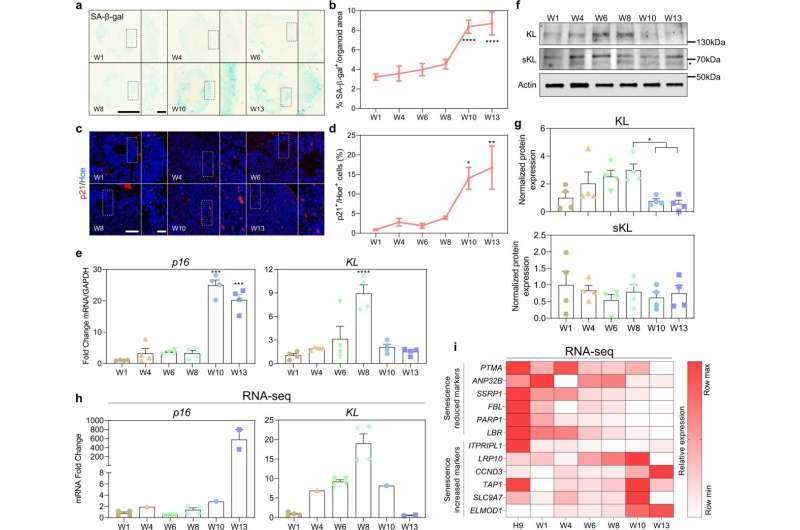
Studying tiny ‘live’ models of the human brain has helped researchers understand its aging and find a key to potential treatments for Alzheimer’s and other neurodegenerative diseases.
University of Queensland scientists have found different cellular mechanisms that can either accelerate or reduce brain cell deterioration.
Professor Ernst Wolvetang studied organoids, models that closely mimic the human brain, at UQ’s Australian Institute for Bioengineering and Nanotechnology.
“We have found that human brain organoids can be used to study the molecular mechanisms that drive brain aging processes,” Professor Wolvetang said.
“This opens the way for testing many molecules that could become potential therapeutic drugs for a host of neurodegenerative diseases.”
Using the organoids, Professor Wolvetang and Dr. Julio Aguado found DNA leakage accelerated aging in the rare neurodegenerative disease Ataxia-Telangiectasia (A-T).
In another research project, Professor Wolvetang and Dr. Mohammed Shaker found that increasing levels of the ‘anti-aging’ protein klotho reduced the deterioration in brain cells associated with age and dementia.
‘Anti-aging’ protein and Alzheimer’s treatment
Dr. Mohammed Shaker used stem cell technology to grow the organoids, with the cellular make-up and architecture of a developing human brain, to study klotho.
https://youtube.com/watch?v=nmV-C3f2Vn4%3Fcolor%3Dwhite
“We genetically altered klotho levels to study the effects an increase in the protein would have on organoid brain cells—and found that it slowed aging processes by 89 percent,” Dr. Shaker said.
“Our research clearly demonstrates that this protein has a powerful and direct effect on reducing the effects of aging in the brain.
“If we can find a way to increase klotho in human brain cells, this could be beneficial in halting or slowing Alzheimer’s disease.”
Source: Read Full Article
